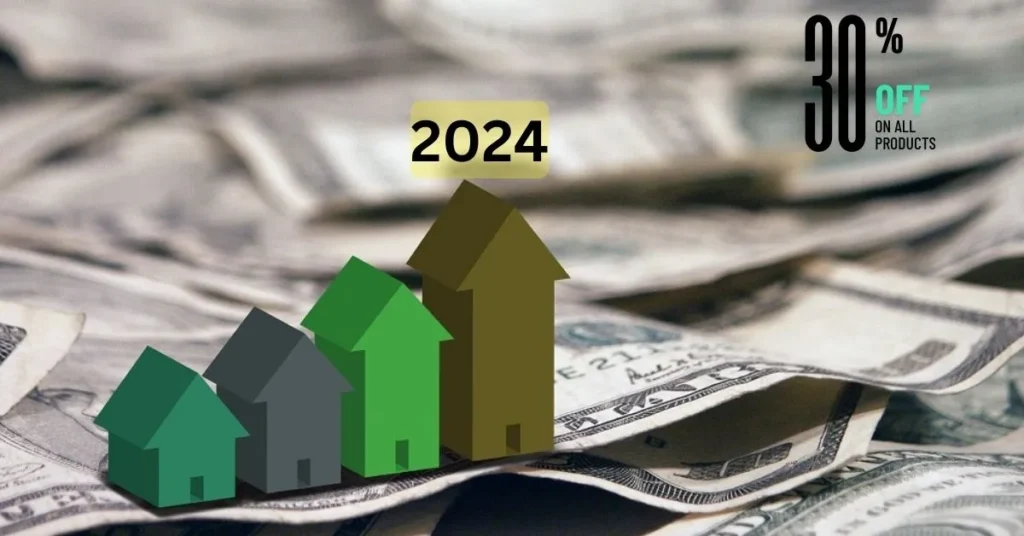Real estate includes buying, selling, and renting land and buildings. People use real estate for homes, businesses, and investments. Understanding how real estate works helps people make better decisions.
Knowing real estate basics can save you money and time. It helps you spot good deals and avoid bad ones. Learning about it is useful for anyone, whether you’re buying a house or investing in property.
When you understand real estate, you can plan for the future. You can choose the best property for your needs. Real estate knowledge is a valuable tool for everyone.
What is Real Estate?
Real estate refers to property made from land and homes. It includes natural assets like crops, minerals, and water. Actual property is a key a part of the financial system.
There are distinct kinds of actual estate. Residential real property includes houses and flats in which humans live. Commercial real estate consists of places for agencies, like places of work, shops, and restaurants.
Industrial real estate covers factories and warehouses used for production and storage. Land real estate involves undeveloped land, farms, and vacant lots. Each type serves a unique purpose and has its own market.
Real Estate Market
The real estate market works via humans buying and promoting properties. Real property retailers assist connect sellers and consumers, guiding them through the manner. Fees depend on region, circumstance, and marketplace demand. When call for is high and supply is low, fees move up. While there are extra houses than buyers, prices drop.

Many factors influence the actual property market. Financial elements like interest charges and Social factors, inclusive of population boom and lifestyle changes, also play a position. Political elements, inclusive of government guidelines and tax legal guidelines, impact the marketplace too. The market moves in cycles, with instances of high pastime (boom) and low activity (bust).
Buying Real Estate
First, figure out your budget and the type of property you want. Then, find a good real estate agent to help you search, make an offer, and close the deal.
Research and Planning
Start by figuring out what you need and how much you can spend. Look into different neighbourhoods and see what properties are available. Make a list of must-haves and nice-to-haves for your new home. Research current market trends to understand prices and demand.
- Determine your budget
- Choose the type of property
- Research neighborhoods
- List your must-haves and nice-to-haves
- Check market trends
Financing Options
You have several options to finance your real estate purchase. Start by checking your credit score and financial status. Explore different mortgage types and rates. It’s important to get pre-approved for a loan to know how much you can afford.
- Check credit score and financial status
- Explore mortgage types and rates
- Get pre-approved for a loan
The Buying Process
The buying process starts when a customer recognizes a need or a problem. They search for information about products or services that can solve their issue. They compare different options, considering factors like price, quality, and reviews.

After evaluating their choices, they make a purchase decision. They select the product that best meets their needs. Finally, they review their purchase and may provide feedback. This helps other customers and influences future buying decisions.
Selling Real Estate
Selling real estate involves listing the property and marketing it to potential buyers. Agents showcase the property, negotiate offers, and handle the paperwork. The goal is to close the sale at the best possible price.
Preparing to Sell
Preparing to sell your home involves several key steps:
Clean and declutter: Make the house spotless and remove personal items.
Repairs and improvements: Fix any damages and consider minor upgrades to boost appeal.
Stage the home: Arrange furniture and decor to make the home inviting.
Set the right price: Research market trends to determine a competitive price.
Next, focus on marketing and presentation:
Professional photos: Hire a photographer to take high-quality pictures.
Online listings: Post your home on real estate websites and social media.
Open houses and showings: Schedule events for potential buyers to visit.
Work with an agent: Consider hiring a real estate agent for expert advice and assistance.
Marketing and Listing
Marketing and listing your home effectively is crucial to attracting buyers:
- Create an appealing listing with professional photos and a detailed description.
- Highlight key features and recent upgrades to catch buyers’ attention.
- Post the listing on popular real estate websites and social media platforms.
- Use targeted ads to reach potential buyers in your area.
Additionally, use traditional marketing methods:
- Distribute flyers and brochures in your neighbourhood.
- Place a “For Sale” sign in your yard to attract local buyers.
- Host open houses and private showings to showcase your home.
- Network with real estate agents to spread the word about your listing.
The Selling Process
The selling process begins with preparing your home. Clean, declutter, and make necessary repairs. Set a competitive price by researching the market. List your home online with appealing photos and descriptions.

Next, market your home to potential buyers. Host open houses and private showings. Negotiate offers and accept the best one. Complete the paperwork and close the sale.
Real Estate Investment
Real estate investment involves buying properties to earn returns. Investors can purchase residential properties like houses and apartments. They rent these out to generate rental income.
Another type is commercial real estate, which includes offices, retail spaces, and warehouses. Investors may also buy land, which can appreciate in value over time. Real estate investment trusts (REITs) allow people to invest in property without buying physical buildings.
Residential Real Estate
Residential real estate refers to properties designed for people to live in. These include single-family homes, apartments, and condos.
- Single-family homes: Standalone houses meant for one family.
- Apartments: Units in a building shared with other tenants.
- Condos: Individually owned units in a building, with shared common areas.
- Townhouses: Multi-floor homes that share walls with neighbouring units.
- Vacation homes: Properties bought for leisure and rental income.
Commercial Real Estate
Commercial real estate refers to properties used for business purposes. This includes offices, retail spaces, warehouses, and industrial buildings. Investors buy these properties to generate income through leasing.
Offices: Spaces where businesses operate.
Retail spaces: Stores and shopping centre’s where goods are sold.
Warehouses: Buildings for storage and distribution of products.
Industrial buildings: Facilities for manufacturing and production.
Real Estate Investment Trusts (REITs)
Real property investment Trusts (REITs) allow people to put money into real estate without buying homes without delay. Investors purchase shares in a REIT, which owns and manages a portfolio of homes. REITs offer a way to earn condominium profits and capital gains from investments.
REITs generally cognizance on precise types of properties, like residential, industrial, or business. They need to distribute at the least 90% in their taxable earnings as dividends to shareholders. This makes REITs an attractive alternative for earnings-looking for investors.
Real Estate Professionals
Real estate professional’s help people buy, sell, and rent properties. They offer expertise in market trends, property values, and legal requirements.
Real Estate Agents and Brokers

Real estate marketers and brokers assist humans buy, sell, and lease houses. They realize the marketplace properly and guide clients via the procedure. Retailers work for brokers, who’ve greater training and licenses. Both can display residences, negotiate offers, and handle office work.
They provide advice, answer questions, and make sure the whole lot is going smoothly. Their purpose is to locate the best offers and make their clients satisfied.
Real Estate Appraisers
Real property appraisers determine the fee of houses, land, and commercial homes. They go to residences, take notes, and examine market traits. Their accurate and independent reports assist customers, sellers, and lenders make informed choices.
Appraisers make sure truthful pricing and easy transactions within the real estate market. It brings readability and confidence to belongings investments.
Related Article : HOW TO GET COMPS FOR COMMERCIAL REAL ESTATE
Property Managers
Property managers oversee apartment residences, ensuring they run easily and successfully. They manage tenant inquiries, collect lease, and coordinate protection and repairs. Through conducting regular inspections, they preserve properties in properly condition.
Property managers also market vacant units and screen potential tenants. Their role ensures both property owners and tenants have a positive experience.
Real Estate Attorneys
Real estate attorneys specialize in property law, helping clients navigate complex transactions. They review contracts, ensure clear titles, and handle closings. If disputes arise, they represent clients in negotiations or court.
Their expertise protects buyers, sellers, and investors from legal issues, ensuring smooth and secure property deals. With their guidance, real estate transactions become straightforward and legally sound.
Legal and Regulatory Aspects
Legal and regulatory aspects in real estate ensure transactions comply with laws and protect all parties involved. They cover zoning, contracts, property rights, and environmental regulations.
Property Rights
Property rights grant owners control over their land and buildings. Owners can sell, lease, or use their property as they wish. These rights also protect against unlawful use by others. By enforcing property rights, the law ensures owners can fully enjoy and benefit from their assets.
Zoning Laws
Zoning laws control land use and development in specific areas. They designate zones for residential, commercial, and industrial purposes. These laws help organize cities, reduce conflicts, and protect property values. Zoning laws also ensure safe and efficient community growth.
- Control land use and development
- Designate zones for different purposes
- Organize cities and reduce conflicts
- Protect property values
- Ensure safe and efficient community growth
Real Estate Contracts
Real estate contracts outline the terms of property transactions. They include details about the buyer, seller, property, and rate. These contracts specify the remaining date and any situations that must be met. Real estate contracts shield all parties by honestly defining their rights and duties.
- Outline terms of property transactions
- Include details about buyer, seller, property, and price
- Specify closing date and conditions
- Protect parties by defining rights and responsibilities
Current Trends in Real Estate 2024
In 2024, real estate developments are focusing on sustainability and technology. Greater buyers are seeking out houses with power-green functions. Clever home generation, like computerized lighting fixtures and protection structures, is also turning into popular.

Remote work continues to influence real estate. People are shifting from huge cities to suburban or rural areas for extra space and affordable expenses. The call for flexible living spaces that can double as home offices is at the rise.
Impact of technology on real estate
Technology is transforming the real estate industry. Online listings make it easier to find homes. Virtual tours allow buyers to view properties from anywhere. AI helps in property valuation and market predictions. Smart homes with IoT devices increase property value. Block chain ensures secure and transparent transactions. It enhances efficiency and convenience in this Field.
Related Article: HOW CAN YOU PROVE THAT A HOUSE IS ON YOUR PROPERTY?
Future outlook for real estate
The future outlook for real estate looks positive. Urban areas will see more demand due to job opportunities. Suburban areas may attract people seeking larger homes. Sustainable and energy-efficient buildings will be extra popular. Real estate fees are expected to rise slowly, but steadily. Apartment markets will stay robust, specifically in towns.
Frequently Asked Questions
What is real estate?
Land, buildings, and natural resources like crops and water.
How do real estate agents help?
Real estate agents assist in buying, selling, and renting properties. They offer market expertise, handle negotiations, and manage paperwork.
What affects real estate prices?
Prices are influenced by location, property condition, market demand, economic factors, and government policies.
What is a mortgage?
A mortgage is a loan used to buy real estate, where the property itself serves as collateral. It’s repaid over time with interest.
Why invest in real estate?
Real estate investment can offer rental income, tax advantages, and property appreciation, making it a treasured asset for wealth building.
Final Thoughts
Understanding how real estate works is essential for making knowledgeable selections about shopping for, promoting, and investing in properties. Real estate entails navigating market developments, belongings values, and legal elements, all of that may impact your financial outcomes.
By learning the basics, you may perceive properly deals, keep away from pitfalls, and plan for future wishes. Whether or not you are searching out a domestic, a commercial enterprise place, or an investment opportunity, actual property knowledge equips you to achieve your dreams efficaciously and effectively.

I am Raza Joun Admin of businessbrighten, Having Five Years Experience to drive a website with best and accurate information for a reader.
This site Covers mostly Things About Real Estate Business.











